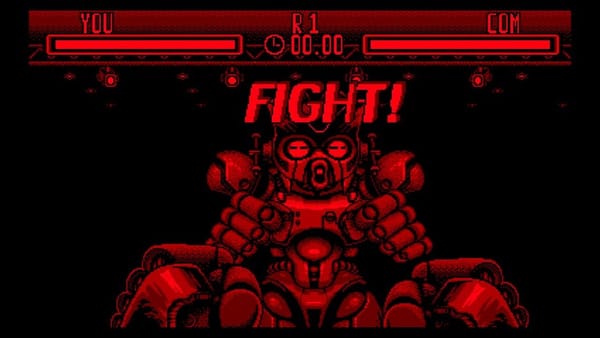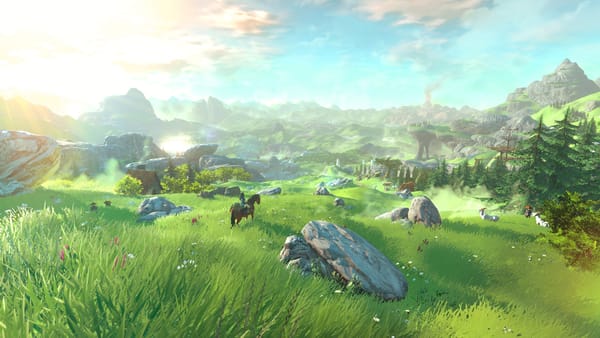#93: Capital idea
Why Microsoft's acquisition fever seems unlikely to spread to Japan.
[Thanks for reading Hit Points! If this is your first time, then a hearty welcome to you. If you enjoy today’s edition, note that you can sign up for free to get this thrice-weekly look at the latest goings on in the game industry sent straight to your inbox, and in the process earn my eternal adoration and respect.]
So, how are we all feeling? About, you know, stuff? It’s been a mad old start to the gaming year, and I’m rather looking forward to the avalanche of new releases that are coming down the pipe in the next few weeks, if only to take my mind off things a little. I’m particularly excited for Gran Turismo 7, the latest in a series I’ve never put much time into, but which, after the Buscemi-esque excesses of Forza Horizon 5, seems far more my speed. Have a coffee, dad, and a nice sit down. Perhaps you’d like to read about the history of Mercedes before you take the Volvo out? Lovely stuff.
In the meantime, however, my thoughts are still on the ever-shifting shape of the game industry. The consensus, to the extent that there is one, is that Microsoft’s mega-buyout of Activision Blizzard is far from the end of the current round of consolidation. But where do we go from here? While Microsoft spending the best part of $70bn at the stroke of a pen makes it abundantly clear that no company is too big to be bought, it does also tell us that it is rather running out of targets — at least in the west. For all the aggression of its recent expansion, Microsoft is yet to make any moves in Japan, and I’ve seen plenty of suggestion that it may, or should, head there next; that a Capcom, Square Enix or similar will be the next headline-grabbing addition to the Xbox Studios family.
While I understand the thinking, particularly from those who live solely to feast on salty PlayStation fanboy tears, I would be very surprised indeed to see it happen. It is terrifically rare for Japanese companies to be acquired from overseas, and on the rare occasions such a deal goes through it doesn’t tend to end well (Vodafone’s spectacular failure in Japan being the most notorious example). Japan isn’t particularly well set up for inward investment. In 2019 the United Nations Conference on Trade and Development ranked the amount of foreign direct investment in 196 countries around the world. Japan came in dead last — one spot behind North Korea.
This, it seems, is in part due to a form of Japanese business partnership called ‘keiretsu’ (literally ‘headless combine’) in which firms in different industries join hands, sign deals, share technology, advice and information, and sometimes even own small stakes in each other. Sony is part of a keiretsu with, among others, the Asahi brewery, Daihatsu and Fujifilm, as well as a bank, shipping company, steelworks and flour mill. A postwar invention, keiretsus are not as powerful as they once were: the relationships still exist, but are no longer so rigidly enforced. But the thinking that powered them — of Japanese companies looking out for each other, cutting preferential and exclusive deals, making themselves bigger and therefore resistant to competition and outside interference — endures.
This does not make it impossible for Microsoft to acquire a Japanese game company, but it certainly makes it unlikely. “Nothing can be ruled out in this day and age,” Dr Serkan Toto, a Japanese game-industry analyst and consultant, tells me. “But in some ways, Microsoft taking over a big Japanese publisher would be bigger news than the Activision deal. So far no foreign game company has been able to acquire a Japanese studio — and I can guarantee you there have been attempts, from both western and Asian players.”
Toto reels off a list of challenges that Microsoft would face in trying to buy a Japanese game company. The most obvious is a lack of appetite for being acquired in the first place: any likely targets are profitable, with significant cash reserves, and if they did desire expansion they’d likely choose to merge with another Japanese company. I ask if a hostile takeover would be an option — most of the likely targets are publicly traded, after all — and, erm, no. “Hostile takeovers are very, very rare in Japan, even local ones,” he says (he’s not wrong: this Nikkei report referencing ‘Japan’s first successful hostile takeover’ was published last August). “They are generally considered the antithesis of the Japanese way of doing business, and almost always a very bad idea. A foreign entity taking over a publicly traded studio against its own will would be a suicide mission: everybody would leave instantly. I would bet my house this will not happen, ever.” That’s me told.
Beyond that, there would be some pretty unconventional ownership structures to navigate — Sega Sammy’s majority shareholder is a family-run asset-management company, for instance — and there are further complications in what Toto calls “the diversified business portfolio of key players: Konami’s gym business, Sega’s resorts, and so on.” Finally, cultural and language barriers would naturally make any acquisition much more challenging.
Japan’s game industry is no stranger to consolidation, of course. Most of today’s major publishers — Koei Tecmo, Bandai Namco, Sega Sammy, Square Enix — were born from mergers. The recent mania for game-industry acquisitions is yet to arrive on Japanese shores, but Toto believes it is only a matter of time until that changes. In the spirit of keiretsu, however, it is unlikely to come from overseas. Japan will, as ever, prefer to do business with itself. If Japan’s game industry is to consolidate, it will likely be to PlayStation’s benefit, not that of Xbox.
“Sony of course has the home-field advantage, and some of the challenges that would come up for Microsoft would not apply to Sony,” he says. “It doesn’t have to be one of the publicly traded powerhouses, but I believe Sony is at least considering making a move in Japan soon.”
Well, there we go. Next time someone tells you Microsoft should buy Capcom or whoever, show them this, and tell them to shut it. Unless Microsoft does buy Capcom, of course, in which case let’s pretend this never happened.
(You should follow Serkan on Twitter, if you don’t already. He’s a good egg.)
MORE!
- Indie-game storefront Itch.io has made its feelings on NFTs wonderfully clear. “Fuck any company that says they support creators and also endorses NFTs in any way… How can you be so dense?” Smashing.
- Stadia has entered the ‘flailing around desperately’ phase that often precedes the quiet death of a much-trumpeted Google product. The company has discussed streaming deals with Peloton, maker of fitness machines for people with a money/sense imbalance, and Bungie, though presumably that one’s gone the way of the dodo now the Destiny maker is joining Sony.
- Newly minted PlatinumGames CEO Atsushi Inaba has hinted that he sees live-service games as key to the studio’s future. “I would like to focus on creating games that can be enjoyed and loved for a longer period of time,” he told Famitsu.
- Cheery co-op platformer It Takes Two has passed five million sales, which is nice. It is also the subject of a bidding war, with a host of studios seeking the rights to a planned film or TV adaptation.
- Oh! I reviewed Sifu for little-known news website The Guardian. I absolutely love the combat system, but the structure is weird and annoying and the game is terrible at explaining itself. If you can be arsed putting the work in it’s quite terrific, but it is certainly not for everyone.
There we go! Have an excellent couple of days, and I’ll see you Wednesday.





